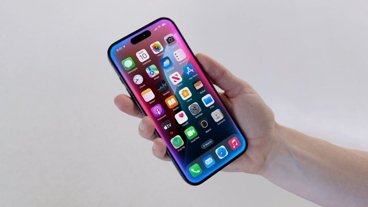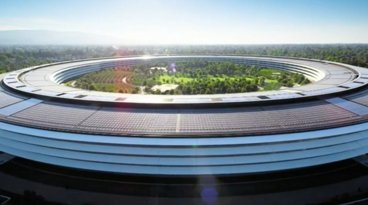Amid a dip in the Chinese smartphone market, Goldman Sachs says that current iPhone shipments in China are 12% lower than the iPhone X series, bucking talk of a super cycle.
In a note to investors seen by AppleInsider, analyst Rod Hall analyzes the latest China smartphone shipment data for the month of May, which was recently released by the state-run China Academy of Information and Communications Technology (CAICT).
Total handset units during the period clocked in at 23 million units, down 32% year-over-year. Hall points out that this appears to be the lowest shipment numbers for China since at least May 2014.
Hall also says that re-opening "seems to have pulled demand forward quite a bit out of April and May," but that the impact appears to have been short-lived. He suggests that China's re-opening story could be a blueprint for how other countries fare when they re-open.
On the iPhone specifically, there were 3.8 million international smartphone shipments in China during May. That mostly consists of iPhone units. Hall says that that's up from 2.8 million units in May 2020, but is generally in-line with trends from prior years.
The September-to-May aggregate unit count comes in at 38 million units, which compares favorably to the 31 million units for the same period in 2018 to 2019, and 2019 to 2020.
However, the analyst says that the 2021 numbers are still down 12% compared to the iPhone X redesign cycle. Hall takes this as evidence that the current iPhone 12 redesign cycle is "materially weaker" than the last one. He says this supports Goldman Sachs' hypothesis that a three-year cadence for the iPhone will see lower peak unit shipments as global penetration reaches a peak.
"It is now difficult to dispute the lack of an iPhone Super Cycle in China with aggregate units down materially over the iPhone X redesign," Hall writes. "This data also challenges the assumption that global iPhone replacement cycles have stabilized as it clearly implies lengthening replacements in China."
Hall is the second analyst to draw conclusions from the May CAICT data. On Thursday, JP Morgan took the same numbers as an indication that Apple was gaining market share in the declining Chinese smartphone market compared to domestic vendors.
The Goldman Sachs analyst maintains his 12-month Apple price target of $130, which is based on a 27x multiple applied to his earnings-per-share forecast. Historically, Hall has had the lowest price targets among Apple analysts.
Keep up with everything Apple in the weekly AppleInsider Podcast — and get a fast news update from AppleInsider Daily. Just say, "Hey, Siri," to your HomePod mini and ask for these podcasts, and our latest HomeKit Insider episode too.
If you want an ad-free main AppleInsider Podcast experience, you can support the AppleInsider podcast by subscribing for $5 per month through Apple's Podcasts app, or via Patreon if you prefer any other podcast player.
AppleInsider is also bringing you the best Apple-related deals for Amazon Prime Day 2021. There are bargains before, during, and even after Prime Day on June 21 and 22 — with every deal at your fingertips throughout the event.
 Mike Peterson
Mike Peterson-xl.jpg)







-m.jpg)






 Charles Martin
Charles Martin

 Malcolm Owen
Malcolm Owen
 William Gallagher
William Gallagher
 Christine McKee
Christine McKee
 Marko Zivkovic
Marko Zivkovic
 Mike Wuerthele
Mike Wuerthele










13 Comments
I wouldn’t put any stock into what this guy at Goldman Sachs says. He has been consistently wrong for years now concerning Apple’s financial situation. How does he keep his job?
Sounds odd since they are gaining market share. Their market must be contracting year over year.
Once I saw the name ‘Rod Hall’ I stopped reading. Remember, this is the Goldman Sachs analyst who predicted a massive drop in AAPL (down to like $85) when every other analyst was saying the opposite. Looks like he’s still clinging to his shorting narrative.
That makes sense: The iPhone X was a major redesign that added significant functionality to the phone. The biggest attraction of the iPhone 12 was the addition of 5G. But China has already been there. They've had it, so Apple simply added itself to list of available 5G phones. Unless a person was locked into Apple, there was no big deal about one more vendor adding 5G.